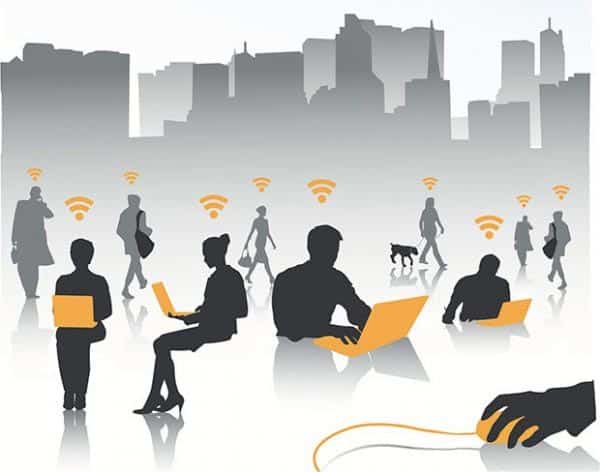
If you use a public Wi-Fi at your coffee shop or your university, then beware! Yes, firewalls on the Wi-Fi router protect you from intrusion from the internet, but it doesn’t keep you safe from others connected on the same network. There is a huge risk of you data being stolen on such unprotected networks. Even you activities can be easily tracked by anyone having basic knowledge about hacking.
To protect yourself from such risks, we have compiled a list of precautions/tips you must keep in mind while connecting to any public WiFi. Read on.
Turn Off Sharing
Always remember to turn off sharing when on a public network. In case the sharing option on your device is on, then it allows others to get into your system and intercept your data. By turning off the sharing option, you minimize the risk of your data being intercepted.
- On your Windows Device, go to “Network and Sharing Centre”.
- Then choose “Change Advanced Sharing Settings”.
- Now you can choose to turn off sharing on public Wi-Fi.
Similarly, on Macs,
- Go to “System Preferences”.
- Then to “Sharing”.
- Ensure that all the boxes are unchecked.
You may also prefer to turn off the Network Discovery, which prevents your system from being visible to others on the network.
Prefer HTTPS or SSL connections
Ensure that you’re using HTTPS or your SSL is enabled while you’re using a public Wi-Fi. This makes the data sent by and to you, encrypted. Not using HTTPS and using an HTTP connection will make you vulnerable to anyone present on the network.
Any text exchanged over such a network can be intercepted by anyone with decent skills. This can turn out to be disastrous if hackers get access to your email/net banking passwords. Use browser extensions like, HTTPS Everywhere, to keep HTTPS enabled all the time in your browser.
Use a VPN
Not every website provides an SSL encryption. Thus, it becomes important to encrypt your data while using such websites. You can use a VPN service like HideMyAss Pro to protect yourself from the prying eyes of the hackers and scammers. VPN connection encrypts all the data passing through it and makes the connection secure against any intrusion.
Patch up your software
Keeping your software updated is another key to beef up your security. Keep your browsers, OS, and antivirus up-to-date to prevent any intrusion in your system. Updated software are bug-free and will not allow any bug to get into your system.
Forget the network after use
Once you’re done with the work, log out of the network and “forget” the network. This disallows your device to automatically connect to such Wi-Fi network, next time you’re within the vicinity. This way you can keep a check on your activities by not unintentionally connecting to the Wi-Fi network, exposing yourself to hackers.
Enable two-factor authentication
Enabling two-factor authentication is always a good choice, whether on a private network or a public network. Even if the password-sniffing hackers get to know your passwords, then also, the two-factor authentication will prevent them from gaining access to you emails or social networks. The added layer of protection is extremely handy on a public network.
When not in use, turn off your Wi-Fi
If you’re not connected to the Wi-Fi network, then it makes you less susceptible to hacking. Thus, it is advised that you turn off the Wi-Fi on your device whenever you are not using it.
Conclusion
Yes, your security is obviously vulnerable when you’re accessing the internet over a public Wi-Fi. To prevent hackers and scammers from accessing your private info, keep the above tips in your mind. These simple tricks will help you to stay safe on public WiFi and reduce the chances of you falling into the traps of online criminals. Just take the above precautions and keep browsing!










